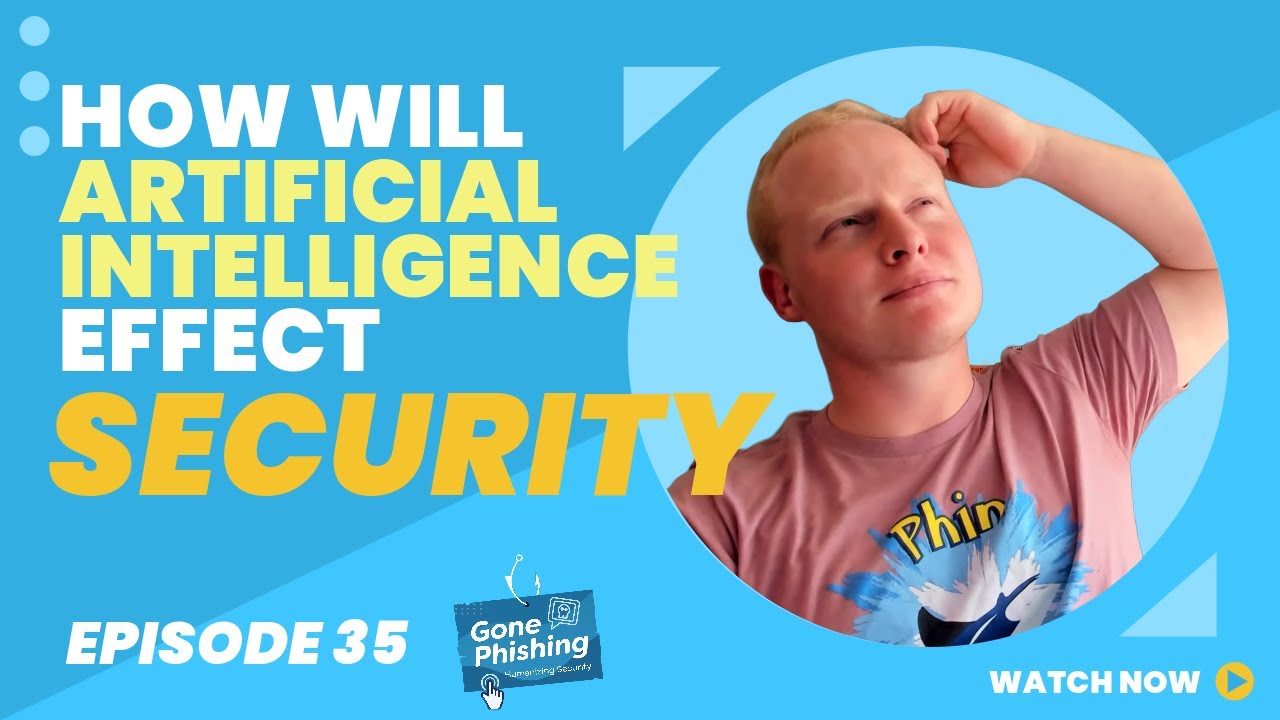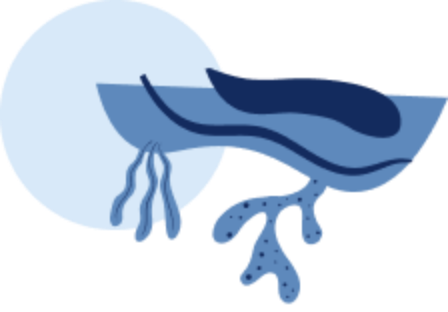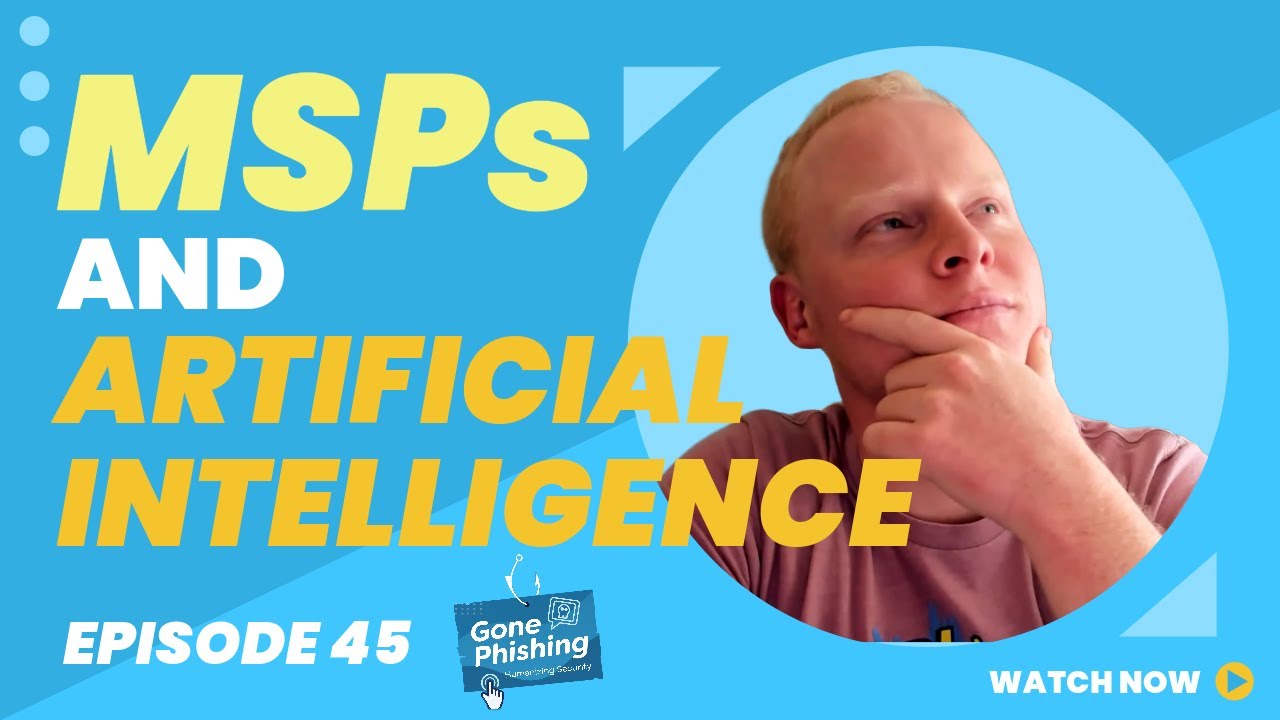


Transcription:
Connor Swam:
Welcome to Gone Phishing, a show diving into the cybersecurity threats that surround our highly connected lives. Every human is different. Every person has unique vulnerabilities that expose them to potentially successful social engineering. On this show, we'll discuss human vulnerability and how it relates to unique individuals. I'm Conor Swam, CEO of Phin Security. And welcome to Gone Phishing. Hey, everyone. Welcome back to another episode of Gone Phishing. I'm your host, Connor, the CEO of Phin. And I am joined once again by Kelsey Blankenship Lackland, the channel engagement manager at Cyber QP.
Kelcye Blankenship-Lackland:
That's me. Hello.
Connor Swam:
See if I get through that one more time without stuttering. Now it's a pattern. Now, I can't say that I have trouble doing it.
Kelcye Blankenship-Lackland:
I don't think you need to walk around saying my entire name and job title, but I appreciate that.
Connor Swam:
I'm going to introduce you to everyone. I know only that now.
Kelcye Blankenship-Lackland:
Okay, that works.
Connor Swam:
I'm gonna start adding phrases to it. Actually, you're the senior community engagement manager.
Kelcye Blankenship-Lackland:
Oh, only if that comes with a pay raise.
Connor Swam:
Back it up, Connor, mid level. Or do I wanna use junior? I don't know. Titles are so weird sometimes.
Kelcye Blankenship-Lackland:
They don't. I know. They really don't. It's so silly. What are we here to talk about today?
Connor Swam:
Public speaking. So for everyone listening, if you haven't seen the other episodes, we talked about personal brand being authentic. Why that's incredibly important. We talked about should you make it about your company or should you make it about yourself and what's the opportunity that's there? Taking advantage of current trends and why people enjoy that and why they resonate and connect with that. And now we're talking about public speaking. So there's like, two things. I remember reading this that people fear, in this order. The first is death. The second most common fear is public speaking.
Kelcye Blankenship-Lackland:
Yeah.
Connor Swam:
Why do you think that is?
Kelcye Blankenship-Lackland:
It's very vulnerable. You have all eyes on you. You're constantly thinking about what everyone else is thinking about you. While you're up there, you're typically a little bit elevated. So they're getting a little underside like, I don't know. You got lots of things to worry about. It's just. It goes from that one one, the one to many. I don't know. It really messes with people. It definitely used to mess with me.
Connor Swam:
How'd you get over it?
Kelcye Blankenship-Lackland:
I thought about it in a sense of in our industry specifically and what I'm doing for work. I want to talk to all of these people anyway. And instead of having 200 conversations, one very effective one, can be a lot better use of my time. Yeah, just, I mean, we're all human. I definitely. I had one speaking spot that I would say, I don't know if I did as poorly as I think I did, but afterwards, I did go. Go in the bathroom and cry. I will admit, it's okay. I'm human. And I ended up being the sucker that I am. I made it into LinkedIn content, and people were just outpouring with support and kindness. And one of the things that sticks with me, Colleen Fry, she was with channel pro.
She said, you know, your humanness is what makes people want to talk to you, want to work with you. They see themselves in you. She was like, all you did was just show that you're a human being, and that's completely okay. And that helped a lot. You know, I got a lot of really good advice, a lot of really sweet people reaching out. But I think that was kind of the turning point for me to just be like, yeah, anybody in this crowd would feel similarly if they were up here and didn't do great or if they did do great. You know, it feels really good to do really well. But just remembering that we're all the same, we are all scared little human.
Connor Swam:
Beings floating on a rock through space, right?
Kelcye Blankenship-Lackland:
None of this is real.
Connor Swam:
We're all in a simulation, and this is your. This is your wake up. You're in a dream. Wake up.
Kelcye Blankenship-Lackland:
The birds worked for the bourgeoisie.
Connor Swam:
The birds are actually fake, and they're plan from the CIA. So, yeah, I think you hit the nail on the head, is when you're speaking publicly. Let's just say you're in a room talking to people. You're on stage. Not only is everyone focused on you, so you're like, you're worried about how you're coming across. It's like you have this fear of rejection. It's, well, what if people don't like what I'm saying or don't agree with it? Not only is it hard for people to deal with confrontation in a one one fashion, nobody likes to be confronted or to do confronting. It's a scale that you have to usually coach into the people that you work with, because it's very important that you deal with confrontation healthily.
But then when you do it in front of hundreds of people, you're like, oh, what if they really don't like it? And you have this fear that you're going to get rejected, which is where most of it comes from.
Kelcye Blankenship-Lackland:
Yeah, and then the what ifs. It's tough. I actually have had a speaking spot where I was walking up the little stairs to the stage, and the stairs weren't attached, so they tipped once I got to the top, and I fell onto the stage. What a way to open a speaking spot, literally falling on the stage.
Connor Swam:
Did you lean into it?
Kelcye Blankenship-Lackland:
Oh, yeah. I was just like, and it's not getting any better than this, everybody. I did hurt my knee pretty good, but that's all right.
Connor Swam:
I wish you would have rolled that into a joke about zero standing privileges. It's like, privileges that I can't stand.
Kelcye Blankenship-Lackland:
Because we have zero standing privilege.
Connor Swam:
Yeah. That's how committed I am.
Kelcye Blankenship-Lackland:
Maybe I could work that into something. Kind of just do a little somersault onto the stage. Be like, think of it willy Wonka style.
Connor Swam:
Yeah. How did you get over your fear of public speaking?
Kelcye Blankenship-Lackland:
I know that we've mentioned him quite a bit, but I'm going to take it right back to Jimmy. Jimmy Hadsall himself, he just flat out told me I was really stressed about getting it perfect, everything I'd said, everything I did. And he just said, people remember you so much more than they remember what you're saying. If they like you and they pick up on a couple of things that you said and they like that's all that matters. I took a public speaker training last December, and they basically told us, people are not remembering your entire 1015 20 minutes presentation. They're remembering how you started and how you ended, and that's really it. So that took a lot of pressure off, too. I mean, think about the number of presentations you've sat through. Like, what do you hold on to from that? Not a lot.
I think that helped. Then I think, again, just reminding myself, like, I want to talk to these people. I want to have these conversations. And reframing your anxiety into excitement is also something that I work hard at doing because they're the same chemical in your brain, adrenaline. So instead of psyching yourself out mentally, just psych yourself up. That's something I still do get a little nervous, like, ten minutes before I start to get a little like. But then I get up there and it's fine.
Connor Swam:
It's like the minute you hit the stage, gone. Yeah, gone.
Kelcye Blankenship-Lackland:
But up until that point, kill them with a joke and.
Connor Swam:
Or you fall.
Kelcye Blankenship-Lackland:
Smooth sailing. Yeah. People of Columbus, Ohio, did not laugh at any jokes, but they came up and told me afterwards that they liked them. I think it's just a very mild mannered area.
Connor Swam:
It's a tough crowd. Tough crowd for sure.
Kelcye Blankenship-Lackland:
I'm a southern girl. Like, I didn't realize how much I've been affected by growing up in the southe until I started going to other areas. Like, when I went to the northeast. I felt like I was a problem to everyone that I'd ever interacted with because they're just. I'm used to southern hospitality, man.
Connor Swam:
Southern drawl.
Kelcye Blankenship-Lackland:
Yeehaw. My chicken tenders.
Connor Swam:
Your chicken tenders. Yeah. I always remember watching my dad talk publicly, so. My dad was a pastor, so I watch him every Sunday, give sermons. That's the word. In front of hundreds, if not thousands of people at a time. And he always told me two things. Never look directly at them. Look right over their heads, and they'll think you're making eye contact. Second is, always talk slower than you think you should.
Kelcye Blankenship-Lackland:
Yeah. When I was first learning to speak, I was told, don't drink alcohol the night before you speak, and don't drink coffee the morning of.
Connor Swam:
Why is that?
Kelcye Blankenship-Lackland:
Well, alcohol is so you don't feel terrible the next day. And coffee is because adding caffeine to the jitters you're already gonna have, it's gonna make you talk faster. It's gonna just put you a little bit more on edge. So, like, don't do yourself that hindrance.
Connor Swam:
Yeah, that makes a lot of sense.
Kelcye Blankenship-Lackland:
Yeah.
Connor Swam:
For. For folks listening, one of the things that Kelsey said, which is basically, people don't remember your content more than they will remember you. And not to intentionally tie this back to one of our previous episodes with you, but to do that intentionally, truly, people want you to be authentic. They want. It's like a statement I made. I just did a webinar with, like, four people in this industry. It was Jason Ray Orsini, Reg Harnish, and Kyle Spooner. And before we're in the green room and we're getting ready for the webinar, and they're all like, well, what are we going to like? We knew what were going to talk about. Like, how should we do this? I was like, people, the only thing they know about this is the title of our presentation, right.
They have zero understanding of what we're about to talk about other than a single sentence. We have an hour, so it's very clearly we're going to talk about a lot that's not this title. So you have to remember, people aren't here for the title. They're here because they saw your face. They're here because they know you. So it's like, whatever we do today, whatever we talk about, make sure it's exactly what you want to talk about.
Kelcye Blankenship-Lackland:
Absolutely.
Connor Swam:
My job, the moderator, or whatever, the panel host, it's like, it's my job to keep you guys all organized and swimming in the same direction. It's your job to be authentic. People are here for you. And I think a lot of people lose sight of that is, especially after you talked a few times, or even if you have a lot of friends, like, before you started speaking publicly with cyber QP this year, or, you know, late last year, people knew who you were. Like, people knew Kelsey.
Kelcye Blankenship-Lackland:
Yeah.
Connor Swam:
So it's like, by the time you got up to talk to them on the stage, it's like, I remember her. It's like, she's cool, she's friendly, whatever.
Kelcye Blankenship-Lackland:
Whatever.
Connor Swam:
Their perception was one of the girls with the red hair, she's annoying. I don't know, even if it's that, you know, all publicity's good publicity.
Kelcye Blankenship-Lackland:
That's right.
Connor Swam:
So you gotta remember, like, people, if you're trying to speak publicly, people want to hear you. They don't wanna hear your content necessarily. They don't want you to fit in this robotic delivery method. I just tried to do the robot. For those of you who are only listening, it was not, thank you for that.
Kelcye Blankenship-Lackland:
They can't see it. I mean, the ones that watched it can form their own opinion.
Connor Swam:
And I think a lot of people miss that, is, they get so bought up into the, oh, like, what if they don't like me? You gotta understand, most people show up because they think they like you to begin with.
Kelcye Blankenship-Lackland:
Yeah.
Connor Swam:
So if you had one piece of advice to give to either yourself, pre younger Kelsey, or someone who's trying to or thinks they should start publicly speaking now, what would it be?
Kelcye Blankenship-Lackland:
Always be a student of the stage. That's something I was told and I find really valuable. Watch other people public speak. You learn what you like and what you don't like, what's effective and what isn't. I think if you're at an industry event and you're watching, you can tie other people's presentations into your own. And that's nice for the people who've been sitting through that all day. Like, oh, yeah, that does make sense that, you know, and then also just remember, like, at the end of the day, we're all human. Nobody's perfect. And I know that's cliche, but it's not the end of the world if it doesn't go perfectly, it's all right.
Connor Swam:
It's not the end of the world. One piece of advice I would give. If you're deathly afraid of public speaking, so much so that you won't do it, join a toastmasters club. Literally a nonprofit that's organized from people in your own community to teach you how to speak publicly and to get comfortable with it. Super helpful. I have friends that went through it or were a part of Toastmaster clubs for a while, and it was really helpful. So I highly recommend doing that if you're thinking about speaking publicly or want to do it.
Kelcye Blankenship-Lackland:
Yeah.
Connor Swam:
Awesome. Well, thanks so much for joining me, Kelsey. There will be links in the show notes not only to your LinkedIn, but also to cyber QP, so that.
Kelcye Blankenship-Lackland:
Appreciate it.
Connor Swam:
People want to connect with you to learn more about finding their tribe public speaking, personal brand, or if they want to learn about zero standing privileges and why you. I think you intentionally fell on that stage. Now that I talked about it, yeah.
Kelcye Blankenship-Lackland:
Obviously it was planned.
Connor Swam:
It was planned. So we'll have links to all that. But thank you so much for joining us today, Kelsey.
Kelcye Blankenship-Lackland:
Yeah, thanks.
Connor Swam:
Thank you, everyone who's listening or watching, thanks so much for taking the time out of your day to spend a little bit of time with us, and we'll see you next time. Thanks so much for tuning in to Gone Phishing. If you want to find out more about high quality security awareness training campaigns, how to launch them in ways that actually engage employees to change their habits, then check us out. Phin security at Phinsec IO. That's p h I nde sec IO, or click all of the wonderful links in our show notes. Thanks for Phishing with me today, and we'll see you next time.






